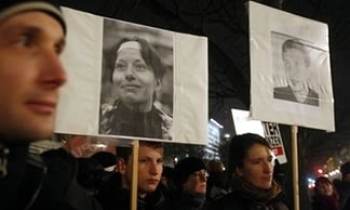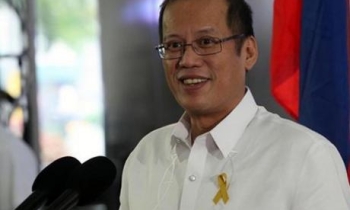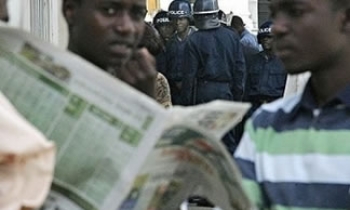The International Federation of Journalists (IFJ ) has condemned the timing of the Senegalese government's announcement that private broadcasters faced closure for nonpayment of licenses fees made on March 22, which was also local elections day in the country.
"It is extraordinary for the goverment to make a statement directly threatening the closure of certain private media on the most important and testing day in any journalist's calendar," declared Gabriel Baglo, Director of IFJ Africa Office. "This appears to be as a direct warning to media on how they choose to cover the election results."
The Agency for Telecommunications and Postal Regulation (ARTP) issued a statement on the evening of the election day to urge private radios and televisions to inmediately pay their royalties or face the withdrawal of their frequencies.
While commending the initiative of the Information and Telecommunications Minister who asked ARTP to postpone the decision, IFJ called on the government to open a dialogue with media owners in order to safeguards the media businesses and jobs for many journalists and the numerous media workers.
"The government should be working with the media owners to ensure that they are able to meet their obligations to pay the license fees without threatening their right and capacity to broadcast. Media pluralism and the jobs and livelihoods of many dedicated media professionals are at stake," added Baglo.
Earlier, Reporters sans Frontières (RSF) condemned a decision by the National Council for Broadcasting Regulation (CNRA) on March 14 to suspend three community radio stations based in the Dakar suburbs for two months for violating the rules governing their operations by covering political issues relating to the current local election campaign.
“Contrary to all our hopes and despite our repeated calls for respect for diversity of views, President Abdoulaye Wade’s government has again set a bad example,” RSF said. “Coming after the three-year jail sentence for 24 Heures Chrono editor El Malick Seck, the suspension of these three radio stations dashes the illusions of those who might still have believed in Senegal’s democratic image. It heightens our concern about the way the authorities will behave towards independent news media during this election period.”
The press freedom organisation added: “It is time the government rescinded article 19 of the community radio regulations, banning them from covering political issues, especially during local election campaigns. This double standard, in which those who support the president are allowed to speak and those who do not are silenced, is unfair and absurd.”
The three community radio stations suspended by the CNRA are Oxy Jeunes (based in the suburb of Pikine), Afia FM (based in the suburb of Grand Yoff) and Djoloff FM (based in the suburb of Linguère). Residents of Pikine have threatened to organise a march in protest against the closure of Oxy Jeunes.
When RSF monitored Senegal’s state-owned media for several weeks in February 2007 during the campaign for the first round of the presidential elections, it found that they displayed a marked pro-government bias throughout the campaign.
“We urged the government at the time to respect the principle of ministerial discretion, under which senior government officials are supposed to adopt a low profile during the campaign,” RSF said. “We also urged the CNRA to draw attention publicly to the imbalance in the state-owned media’s political news coverage.”









